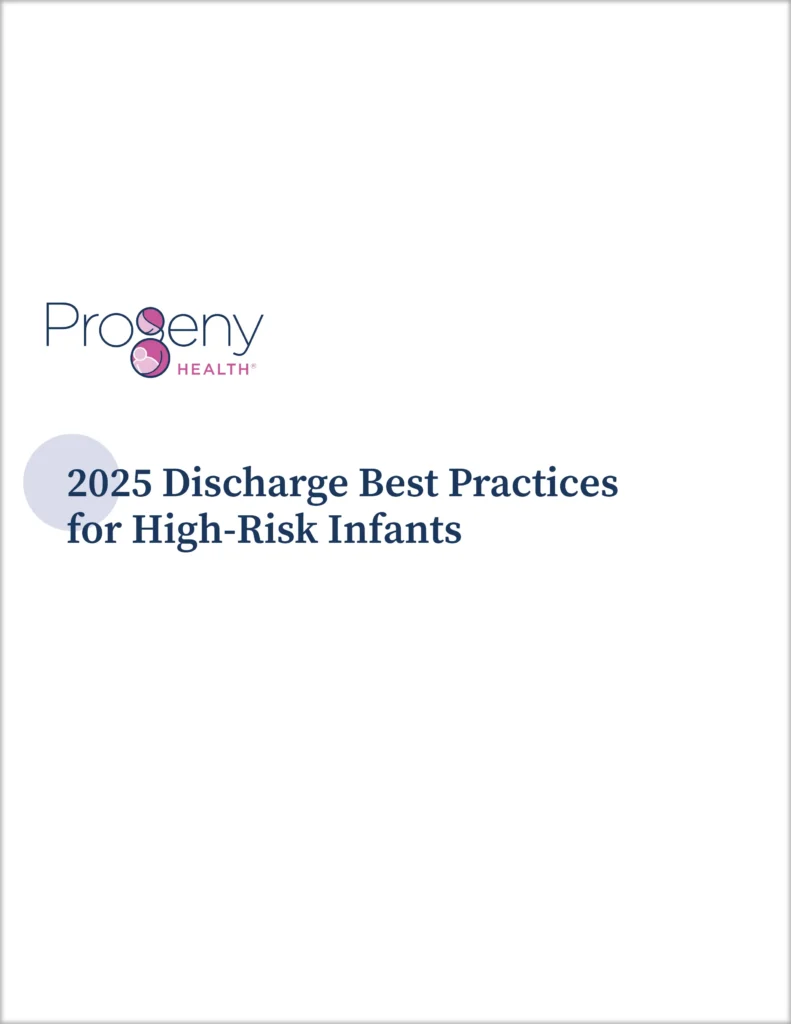 Filed Under: Infant Health
Filed Under: Infant HealthA Different Kind of Graduation: How Infants Transfer from NICU to Home

For the vast majority of families, pregnancy and delivery follows a typical path. But for about 10 percent of families, a complication will occur that requires a NICU stay for their newborn. Each of these stays looks different for every family. For an infant dealing with mild hypoglycemia, a NICU stay may only take 48 hours. For a micro preemie born at 24 weeks, the time in the NICU may take months. However, the end goal is ultimately the same — a safe and medically appropriate discharge and trip home with no readmissions. What does that entail? As it turns out, a NICU graduation is unlike any other kind.
Making the Grade
As an infant progresses through the NICU, caregivers experience many highs and lows, but also uncertainty. “When is my baby coming home?” is a common question neonatologists hear, but a simple way to anticipate a discharge is to remember A.F.T.E.R. (Antibiotics, Feeding, Temperature, Events and Respiratory)”.
A discharge from the NICU can only occur when an infant meets certain criteria such as can breathe on their own, take feeds orally, gain weight, and self-regulate their temperature. Additionally, the infant must be able to go several days without any adverse health events or respiratory issues. Once an infant can meet all these milestones, clinicians can begin to consider a discharge.
Throughout a NICU stay, ProgenyHealth’s Utilization Management Team monitors the infant’s progress to ensure the appropriate level of care and ensure a timely discharge.

Learn more about discharge instructions fro NICU infants with high risk
Educating Caregivers
A NICU infant’s discharge requires a group effort. NICU discharge preparation and transition planning: guidelines and recommendations states, “each family will need to have infant care knowledge and skills to be able to provide care at home for their infant.” The guidelines detail the skills and knowledge needed by parents, including:
- How they will safely feed their baby.
- How to bathe their baby.
- How to dress their baby for the weather and for sleep.
- Circumcision and umbilical cord care as indicated.
- Recognizing fever and other potential signs of illness and who to call with medical questions/concerns.
With so much to know, it’s easy to understand why 9 out of 10 caregivers struggle with health literacy. If you’d like to learn more about how ProgenyHealth Case Managers educate caregivers, read our health literacy blog.
Postgrad Life
It bears repeating…every NICU stay and infant is different. Many NICU graduates will leave the NICU and have a totally typical development. Others will require GI tubes, reconstructive surgery, physical and speech therapy, as well as many other types of medical interventions. Beyond the clinical complications, many caregivers will face the stress of caring for a medically complex infant, while also paying potentially thousands of dollars in medical bills. Having a trusted partner to guide families through this process is one of the reasons so many health plans are turning to ProgenyHealth. Our Integrated Maternity and NICU Care Management Solution improves outcomes, builds collaborative relationships with providers, gives families the support they need and lowers overall cost of care.





 Prev
Prev